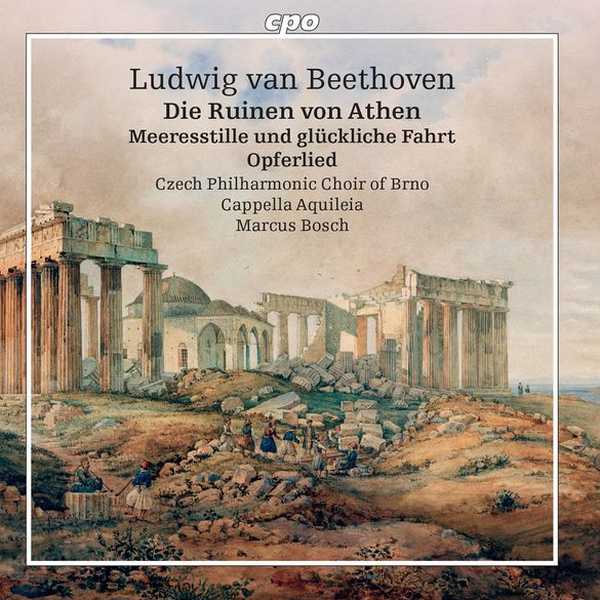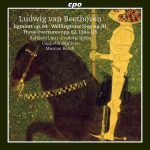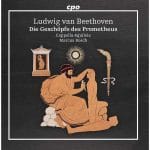
Composer: Ludwig van Beethoven
Performer: Valda Wilson, Simon Bailey, Sidonie von Krosigk, Tschechischer Philharmonischer Chor Brunn
Orchestra: Cappella Aquileia
Conductor: Marcus Bosch
Format: FLAC (tracks)
Label: CPO
Catalogue: 777634-2
Release: 2020
Size: 224 MB
Recovery: +3%
Scan: yes
Die Ruinen von Athen, Op. 113
01. Overture
02. Athene bin ich
03. No. 1, Tochter des mächtigen Zeus!
04. Versöhnt? Mein Vater?
05. Ohne Verschulden Knechtschaft erdulden
06. No. 2, Wo sind wir nur? Ist das Athen?
07. No. 3, Du hast in deines Ärmels Falten
08. Edler Freund
09. No. 4, Marcia alla turca
10. Das Griechenland der Götter ist verloren
11. No. 5a, In des Herzens heilig stille Räume
12. Einen neuen Tempel will ich errichten
13. No. 5b, Und die neuen Bürger ziehen
14. No. 6a, Herbei ihr Musen!
15. No. 6b, Mit reger Freude, die nie erkaltet
16. No. 7a, Wir tragen empfängliche Herzen im Busen
17. No. 7b, Will unser Genius noch einen Wunsch gewähren
18. Freude heißt die starke Feder
19. No. 8, Heil unsrem König!
20. Meeresstille und glückliche Fahrt, Op. 112
21. Opferlied, Op. 121b
The focus of our second collaborative venture with the Cappella Aquileia and Marcus Bosch for the Beethoven Year is formed by the complete recording of The Ruins of Athens, an incidental composition penned by Beethoven for the opening of the recently constructed theater in Pest (today: Budapest) in 1812 and an occasional work set to a text by the then popular writer August von Kotzebue. Those who perform this work today are faced with a dilemma. If they perform Beethoven’s music without the spoken text, then a work in which language and music are closely intertwined is reduced to an arbitrary sequence of musical numbers. However, if they perform The Ruins of Athens with Kotzebue’s text, then they confront audiences with a political metaphor that without explanation would cause today’s listeners to shake their heads (at least) in bewilderment. In a new version Kai Weßler has endeavored to update Beethoven’s important idea of a classical-humanistic heritage embodied by Pallas Athena and to free it from the political connotations current during his times (and from Hungarian nationalism). The twofold goal was on the one hand to situate The Ruins of Athens in its time of composition during a period of social and political upheavals and on the other hand once again to render audible and intelligible the symbolism of the work (Athens as the cradle of European civilization, etc.).



